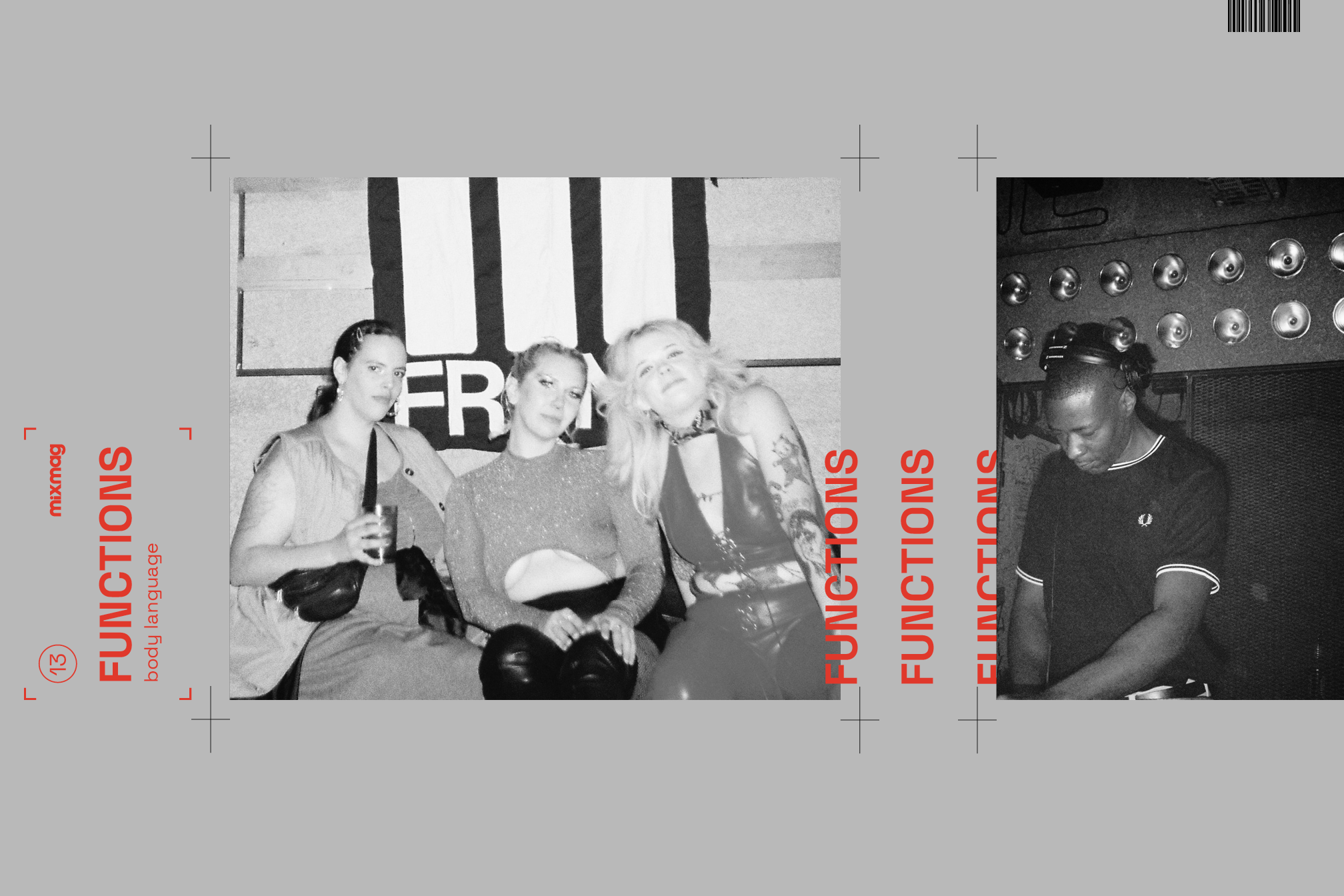 Features
Features
Entrenched in love: Body Language gives Berlin's queer femmes space to move
Body Language is the Berlin-based femme party spreading a message of resistance and positivity through charitable efforts, community building, and queer-friendly spaces
Functions is Mixmag's interview series profiling parties from across the world. Next up: Berlin’s Body Language.
Body Language began in October 2021 with the goal of creating safer spaces in dance music. Now, 12 months later and ethos still intact, its become one of Berlin's leading femme-focused parties, accommodating a fringe of music lovers pushing back against the male-dominated norm.
“We love to make you feel good, and that makes us feel good too,” says Cait, one of three founders at Body Language. Cait is joined by co-founders Stella and Camilla who each hold down DJ residencies at their self-curated nights. “We want to be a truly community-focused event, and an example of best practice in terms of artist and staff payment, fundraising efforts, quality of bookings, and safety initiatives,” she adds. “We run Body Language solely as a group of three passionate friends whose lives were changed by parties and the desire to extend that love to our community…sentimental, we know!”
Read this next: Cracking onwards: How InterChange grew from Glasweigan house parties to top techno clubs
Not only does Body Language offer a space for the queer femme community of Berlin, but it also offers relief through charitable efforts such as taxi funds, DJ lessons, and pledging to NGOs such as Trans*sexworks — even donating further afield with charities including Kyiv Pride and Berlin To Borders. Entrenched in love for the community, the non-profit party continues to run sporadically throughout the year with a run of femme and queer DJs, both Berlin-based and otherwise. They do it all with open arms - and a nose for new talent.
We caught up with the brains behind Body Language to hear how the new Berlin party sets itself apart from the rest. Read their Q&A below.
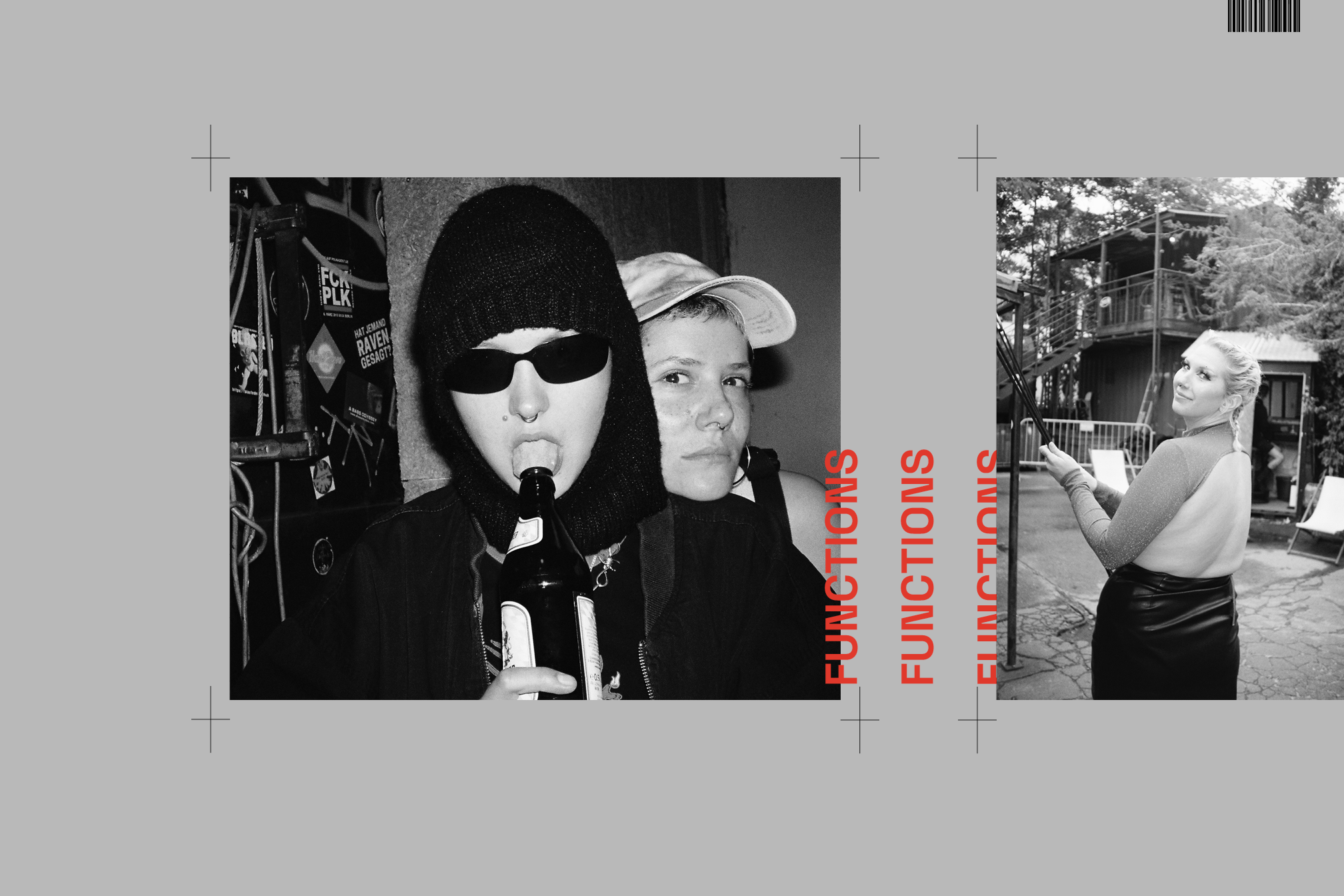
How did Body Language first form? Who were the originators of the night?
Body Language was started in October 2021 by Stella Zekri, Camilla Rae and Caitlin Russell — our resident DJs are Stella, Camilla, and our close friend 131BPM. While Body Language officially started in October 2021, we all initially started working together around 2018 at the now-defunct underground queer venue KAKE. This was our first opportunity to create the type of venue and events that we wanted to see in Berlin and we fell in love with all the possibilities and potential of focusing on creating new spaces for our community. However, as we all worked in nightlife and clubs, the COVID-19 pandemic hit us quite hard. We had to re-evaluate our hustle and how we wanted to interact with partying. When things opened up again, we took our time deciding if we wanted to start up again and — if we did, what it would look like.
While there was a sense of relief when partying came back, we felt that people had lost a sense of what drew many of us to the dancefloor in the first place: music, connection, community and the joy that these aspects bring. This is why we developed the concept of Body Language. We wanted to create a party that gave you hope for the week ahead, the happiness to chase away the feelings of loss, a chance to meet new people or strengthen current relationships, to be inspired by new music and physical movement, and truly find a community that can exist in and out of the club.
Read this next: Going with the flow: Fluidae is bringing positive connections to Sicily's dancefloors
Body Language is a femme-focused night - what’s the process like in booking your events?
We are not explicitly a 'FLINTA*'-only (a german abbreviation that stands for women, lesbians, intersex, non-binary, trans and ageing people) party - that is, we prioritise femmes, but we do not solely book femmes. However, we felt that queer femmes were still not entirely welcomed, either overtly or subconsciously, by other parties. Many of the femmes we know still feel unwelcome, erased, or not taken seriously within nightlife, so we wanted to curate a space that highlights and celebrates femme identity. Rather than carving out a new, separate space, we wanted to instead push this forward into an integrated party.
Stella is responsible for our artist selection and puts her perspective as a DJ at the heart of our bookings. For our first party, Stella set herself the goal of solely booking FLINTA* artists to set up a structure where we were critically looking at our own bookings to ensure that we weren’t letting our own bias or privilege affect the lineups. Although our line-ups are still primarily FLINTA* artists now, they are not exclusively so. Instead, we assess bookings and make sure they represent our community - our artists come from a variety of backgrounds in terms of sex, gender, and ethnicity, but also ensure we book artists of all levels to provide meaningful opportunities to up-and-coming artists, or who may not benefit from the privilege of wealth or connections. Ultimately, we prioritise artists who reject the patriarchal ideals of society and club culture: we want passionate artists who promote the positive values of club culture and do so with heart. For us, this is a meaningful way to challenge the “bro culture” of nightlife.
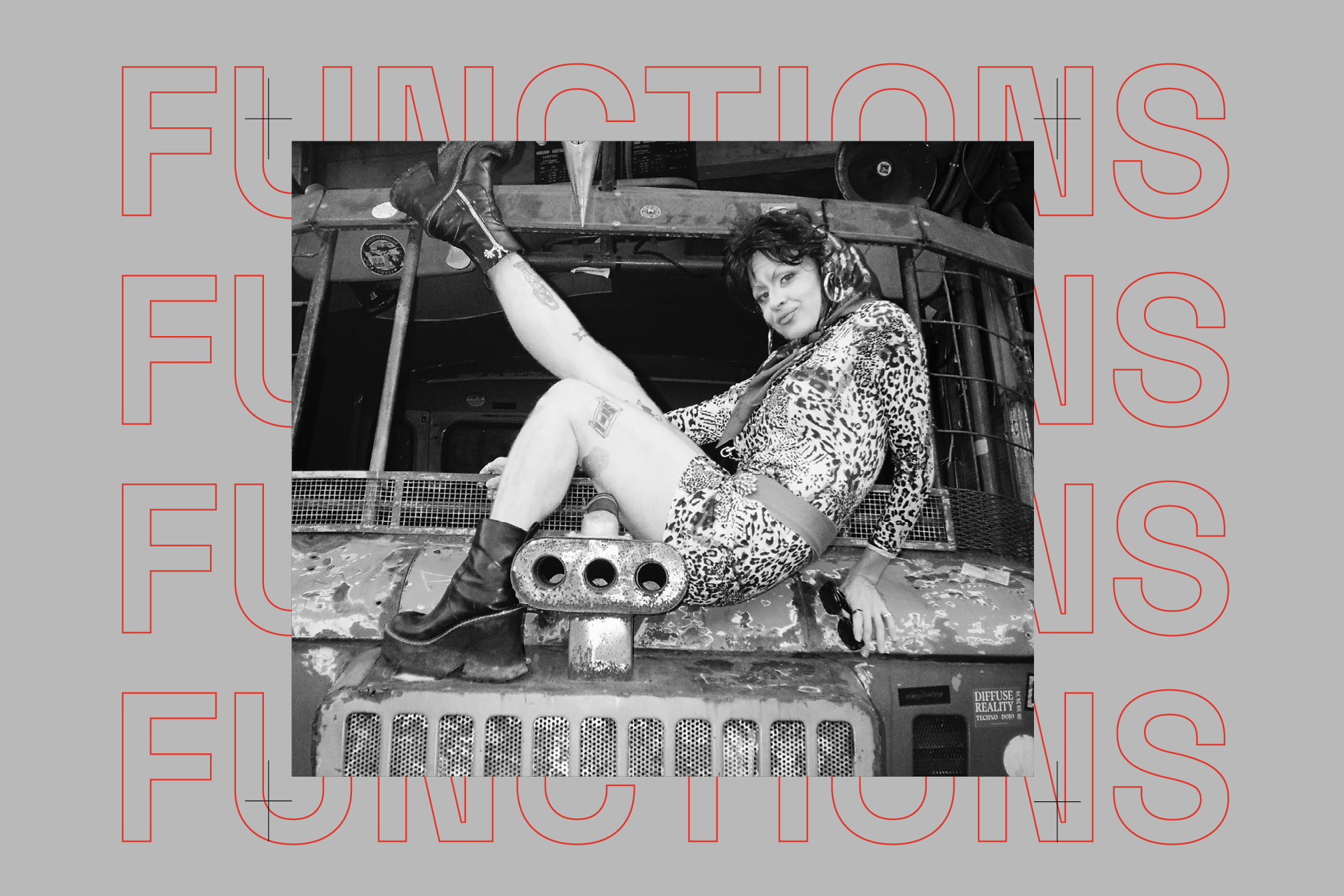
What sets Body Language apart from other club nights in Berlin?
We are putting in the effort to create something new and different in Berlin. We are all music lovers who appreciate the broad spectrum of dance music and the genres that influenced it. We wanted to create a party that encouraged more diversity in sound while also remembering its key function in the club: getting people moving! We were all craving the experience of walking onto a dancefloor with no idea what we would hear, but then being excited and inspired by new songs and artists. That is why now, with Body Language, there is no way to define our sound expectations other than “quality.”
We want people to be surprised and delighted by the new music they hear at Body Language, encourage curiosity in our guests’ musical tastes, and aim to be a leading example of the next generation of queer parties in Berlin. For the house heads, the stomper ravers, the polyrhythms lovers, the ones that love it faster or slower, etc. The common ground across all of our artists is that they each DJ with lots of personality. We try to pay less attention to what sound is trending or what artist is getting big and instead focus on presenting music we love and finding artists we think deserve to be heard and experienced by our crowd.
You’ve only thrown a handful of parties so far, what has the reaction been like to these inclusive, open-arm nights?
Humbling and exciting. It’s really wonderful to see people letting themselves let go and just enjoying a moment of fun with zero expectations. People come up to us and the most common feedback is: ‘this is a cute crowd, and the music is fierce’. People have gotten emotional about the power of this and are relieved to have found a space where they feel welcomed, joy from finding their community, and pleasure from hearing great music. This starts a conversation in a positive way: if this party can make me feel this way, how can I carry this feeling into my daily life? How can I foster that change in other spaces? We love to make you feel good, and that makes us feel good too.
Read this next: Midweek fever pitch: Platforms is bringing rave spirit to Tuesday nights
Why is it important to have specific spaces for LGBTQIA+ and femme audiences?
We are lucky here in Berlin that we have so many incredible queer parties - in fact, the best parties in this city are queer parties. We are proud to continue the historical legacy of nightlife as a space for our community to come together - the importance of these spaces is rooted in the cultural legacy of nightlife as an inherently queer activity. The nightlife scene we know and love, and the music we dance to in those spaces was created for and by Black and Brown people, in particular by queer and trans icons. Femmes were always a part of this legacy, but they have been increasingly pushed aside. Our trans sisters face discrimination and violence, femme gay men are shamed, and cis women are often only seen as the company of the gay men they came with. For us, it’s important to celebrate femme guests in existing LGBTQIA+ spaces. We should not have to create exclusive spaces in order to feel safe or welcomed.
Body Language is our attempt to make a space where more people feel welcomed, seen, and appreciated. It’s not so much about creating another specifically queer, femme space, but honouring our own queerness and femme identity, celebrating the femmes and queers that we love, and channelling all of that into something bigger than ourselves. Being a femme-centred party means we are publicly challenging misogyny by simply celebrating what the patriarchy has tried to minimise or erase. We want to encourage people to care about themselves, each other, and the scene, to embrace vulnerability and connection in a city that encourages us to be individualists or makes us feel isolated, to reject this idea in male-dominated spaces that you have to be cool and distant, or hot in a particular way.
Queerness is a lifestyle, not just a sexuality. It’s about questioning social norms in the hope of creating something better. So while we are so privileged to have so many opportunities to be freely queer in Berlin, there will always be someone new in town, or someone exploring their queerness, and we want to be a space where you can feel safe and free to figure it out or celebrate where you are at. There is nothing better than the hype-up talk from drunk girls in the bathroom, right? Now imagine a whole space designed to encourage those kinds of connections - that is what we want Body Language to be and what we want to see more of in queer spaces.
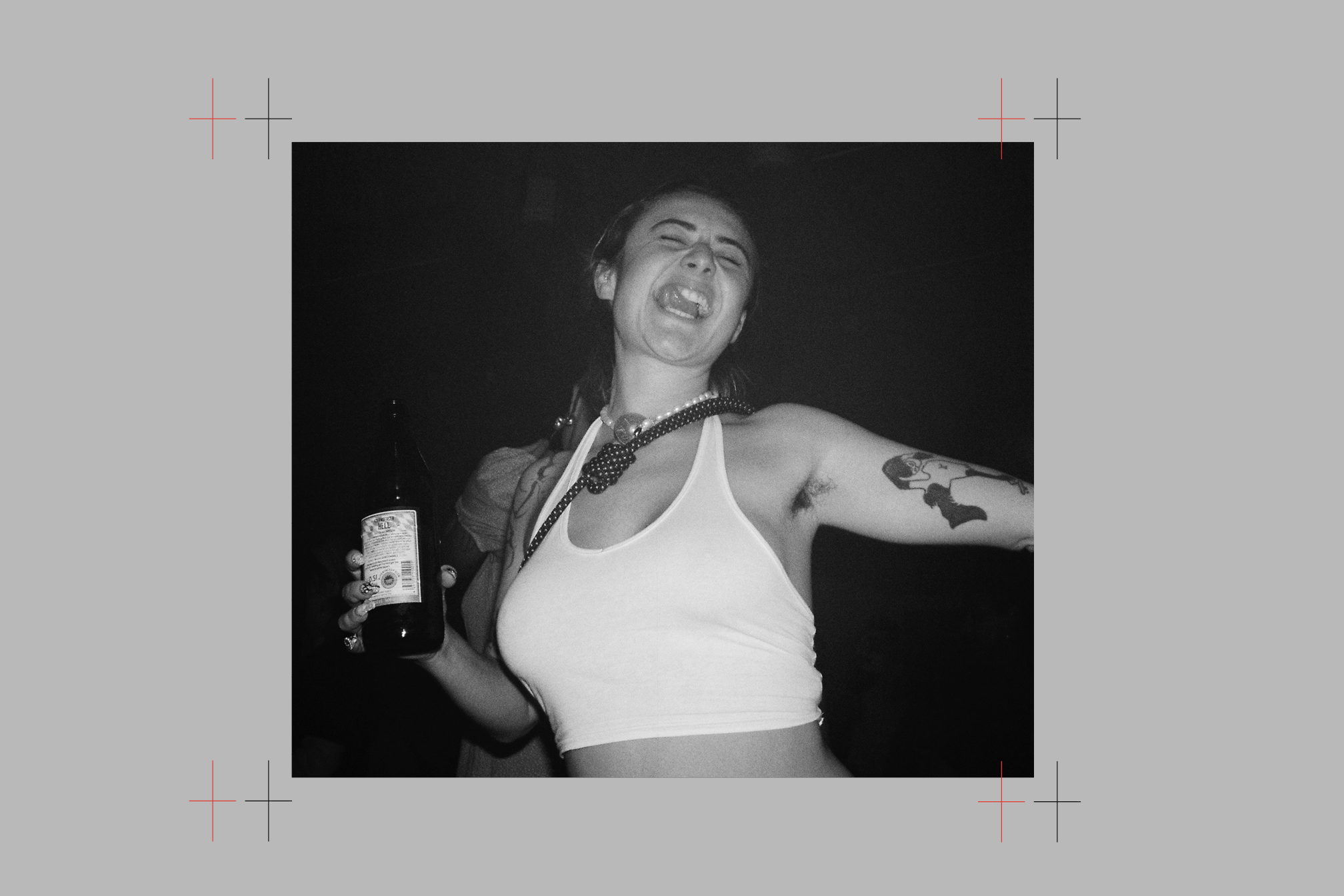
You’ve set up a taxi fund initiative for QTBIPOC guests - how did that idea come about? What does it look like in action?
The first event we saw doing this taxi fund idea was another local crew we really respect, Lecken. When deciding to set up Body Language, we made the conscious choice that we would make sure there was a measurable impact at each party. We do this in a few ways:
1. Raising money for charitable causes at each party
2. Offering solidarity spots for members of marginalised communities (QTBIPOC, refugee, sex worker, working-class migration backgrounds, etc.)
3. Offering a taxi fund so that, if we are encouraging marginalised guests to come, they have a safe way home
We incorporate our charity fundraiser into our admission - a portion of every paid entry is donated straight to our fundraiser. Our guestlist entries are also requested to donate five euros minimum, if funds allow, and this is split between our taxi fund and fundraiser. Most importantly, we are transparent about how and why we fund this: everyone deserves to get home safe, but not everyone has equal privilege to do so. The way it works is simple, we raise funds, and if you need to use them, you show us your fare on a taxi or ride sharing app. We will give you this money in cash, and off you go! People feel seen when an organiser comes up and says, ‘hey, I hope you had a great night, did you know that we can also cover your cab home?’. This is also extended to people who are intoxicated or have dead phones and are worried about getting home, it can be a risk if you are worried about money. For now it works and we will continue doing our best to maintain this, or hopefully offer it to even more guests one day. Safer spaces to us means you feel welcomed and that you will have a great night, but a great night is ruined if you have a shit journey home.
Read this next: Revolutionary impact: How ZVUK built dance music as a culture in Kazakhstan
What are some highlights from the events you’ve hosted so far?
We’re so happy to already have so many fond memories from our parties! One is raising over 4,000 euros across our first four parties for NGOs such as Kyiv Pride, Berlin to Borders, FrauenZimmer, and Trans*sexworks, as well as gender-confirming surgery funds for members of our community. Another i throwing our biggest party for CSD, Berlin’s Pride weekend! We hosted 11 artists across three floors and seeing every artist absolutely kill it and hundreds of queer babes just living their best life is so special. Highlights would be Rose Kourts’ Berlin debut, DJ Fuckoff’s hybrid live set, Khadija commanding a Kylie Minogue singalong to ‘Can’t Get You Outta My Head’, Sarra Wild’s mesmerising set, and having one of Berlin’s finest DJs, Handmade, join us.
Our newest resident 131BPM made his Body Language debut at our September party, he’s a banger factory that has been diligently working for years and producing some of the best music around. We wanted to showcase him and show everyone just how much we respect him as an artist, so when the crowd cheered and screamed at every break in music it really felt special to see someone get the moment you know they deserve! Our designer Jude and his friend Michael comes in the most iconic, camp, drag every edition. Jude was also the person who made our Femmes To The Front banner, and these two moments really represent the fun and heart of our party. Every single person who has ever come up to us and told us they love what they are hearing or how the music makes them feel - we really do remember that, and it really keeps us going too.
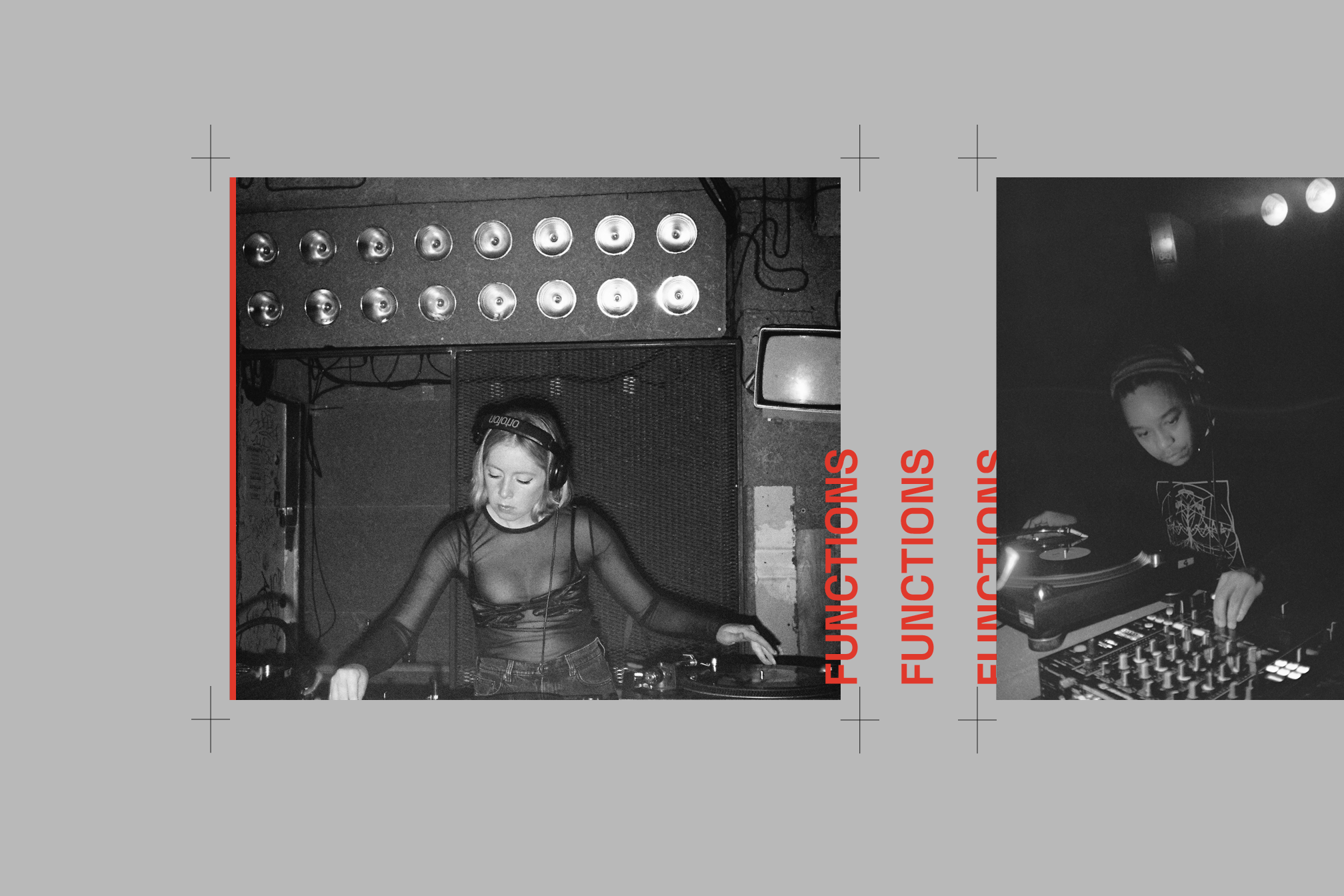
You’ve recently hosted some DJ workshops - are you planning to keep that going? What has the response been like to those?
We were recently fortunate enough to be selected for a Tag Der Clubkultur grant. This is a funding program by the Berlin Clubcommission, the Senate Department for Culture and Europe and the Musicboard Berlin to highlight the diversity and importance of Berlin’s club culture. This financial support allowed us to offer free skill sessions in partnership with another great Berlin crew called RAIDERS.
Together, we offered free CDJ and vinyl workshops, Ableton production and Ableton mixing and mastering classes, an awareness workshop, and an open Q&A on event organisation. There was a huge response to each workshop, with people really enthusiastically signing up. It felt really good to have a room full of people excited about throwing their own parties in the future and answering all their questions to support the next generation of parties. There is a hunger for this type of event here, and we would love to continue offering this in future.
What’s next for Body Language?
Our next party is on November 20, and this will be our last for the year. Then, from February 2023, we will be moving to Saturdays to allow us to grow even more. We want to keep the fire burning and strike a balance between doing more and also doing our current concept well. In general, we look forward to collaborating with other collectives and sharing more dancefloor moments together.
Body Language's next party takes place on November 20. Keep up to date with info on the next event here
Photos by Mon Castillo, follow them on Instagram
Gemma Ross is Mixmag's Editorial Assistant, follow her on Twitter


